Agatha on screen pt 1
A First Eleven
First: a huge thank you to all my new subscribers. I am extraordinarily grateful. Substack is now very crowded (in a good way) so the fact that people choose to come here, and read me, is much appreciated. Second: I am in the midst (still) of an agonizingly prolonged book hell, about which I feel that it is wise to say nothing, for the moment at least… and because of it, not only did I fail to see more than about three minutes of the whole of Wimbledon, plus England’s triumphant test win at Lord’s, I have no new Substack for this week.
So given that the subscriber count has sort of doubled since these were first posted, I have decided, over the next three days, to release three connected pieces from behind the paywall. They have changed a little - there is, for instance, a new entry in this particular post - nevertheless, huge apologies to those who have seen them already. Normal service again next week.
They are bagatelles: a top ten, (now XI, in honour of the cricket), followed by a two-part bottom ten (much more fun), of Agatha Christie screen adaptations. HIGHLY subjective. Today’s number one is pretty non-controversial…. even unarguable? Although lists of Hitchcock films always put Vertigo at the top, and I find it atrociously boring (have never not fallen asleep when they’re in that bloody art gallery), so who knows.
What a shame Hitchcock never made an Agatha!
And Then There Were None (1945)
‘How many will you be for dinner tonight?’ asks the butler (soon to be corpse number four): a reasonable question in the circumstances. This film is directed by René Clair, and with its neo-gothic chiaroscuro and not-quite-starry cast, I would characterize it as a B+ Movie; there are touches of piercing inventiveness (mostly in shot compositions) that hint at the superior creative in charge. It is atmospheric, in a contained and comfortable way, and the performances of Barry Fitzgerald, Walter Huston, Roland Young and Judith Anderson are sincere and histrionic in exactly the right measure.
Agatha herself called the film ‘bad’, but she was generally anti-screen (except for horse racing) so not the most reliable. In my view, it is by far the best screen adaptation of her most successful book; the ending is softened to margarine consistency/quality, but preferable to the pornographic sadism of the 2015 BBC version - which was admired by people whose opinions I respect, but I hated it. Not because of the pornographic sadism, but because it seemed to hold its source material in obscure contempt.
As Agatha’s first adaptation by a big studio - 20th Century Fox - And Then There Were None is significant: it signalled the start of her post-war metamorphosis, from successful writer to matchless global phenomenon. And this mainly successful coupling, of Christie and French auteur, makes one regret the film that was briefly a possibility, but did not happen: Claude Chabrol’s Towards Zero. Imagine!
Love From a Stranger (1937)
Adapted from a stage version of one of Agatha’s finest short stories, ‘Philomel Cottage’, a stark tale of love and mistrust, this film is apparently admired by Tarantino and has a score by Benjamin Britten. It opens with a shot of Westminster Bridge, and has that glorious, slightly bonkers aspect of pre-war British films: the bleached and shadowy black-and-white, the clipped and gabbly voices, the snatched editing, the unrepentant staginess… plus Basil Rathbone giving all of his inimitable all.
Joan Hickson features in a small role. There was a remake ten years later, which I haven’t seen but cannot possibly be as much fun. Incidentally I have seen the stage version (written by Frank Vosper) and loved it; it was directed by Lucy Bailey, who to my mind is Agatha’s best contemporary interpreter by a thousand miles. Never miss a chance to see her version of And Then There Were None, absolutely marvellous! Richmond Theatre was never so packed and excited.
Endless Night (1972)
Agatha, again, disliked this film, and said as much, incisively, in an interview with Lord Snowdon (in which she sounds far posher than he does). ‘It had a Very Unpleasant scene which was written at the end, which was Very Unnecessary.’ This referred to a murder that dwells upon the realities of strangulation - realities that she herself had alluded to, with a very modern frankness, in her 1967 novel. Her husband Max Mallowan is heard gabbling something about how he liked the cinematography, to which Agatha replies: ‘Well, I think Otherwise.’
The film is far from perfect, with a script that seems not fully to understand the beautifully clear dynamic of the book, but one has the constant, frustrating sense that it could be better. It is directed by Sidney Gilliatt, who had been around since the thirties (he wrote Hitchcock’s The Lady Vanishes, thus a bit of a god) and who makes the customary changes that adaptations cannot resist, which cling like barnacles to Agatha’s pure geometry. But Hayley Mills, capering with a somehow heart-clenching sweetness as the heiress lead, is perfection. So too is Hywel Bennett as her jumped-up pantry boy husband. The worst casting by far is of the house, surely the most important character in the novel: Agatha conjures a dream house, full of light and mystery (rather like her own Greenway in Devon), and the film gives us something from the 1971 Ideal Home Exhibition at Earl’s Court.
Nevertheless I find Endless Night oddly atmospheric, if perhaps not quite in the way that was intended.
The Seven Dials Mystery (1981)
This TV adaptation of Agatha’s 1929 thriller - a slightly acidic take on bright young thingery - is sheer silly heaven. Assured, unabashed, lavishly costumed and lipsticked, it is the-eighties-does-interwar television with John Gielgud as an eccentric aristocrat and a delectable Cheryl Campbell, having a ball as a non-angsty version of Iris Storm from The Green Hat (she drives a Hispano-Suiza at full pelt and is an independent New Woman of the kind that Agatha, despite her robust rejection of the feminist creed, instinctively loved to create).
In similar style is the sumptuous Why Didn’t They Ask Evans? (1980), which stars a radiant Francesca Annis and is, I think, better than the recent Hugh Laurie remake, although that is good also (very very slightly too knowing for my taste). A remake of Seven Dials is I believe on its way, words that fill me with trepidation as I type them, although as Miss Marple puts it: ‘One always has hope.’
The Case of the Middle-Aged Wife (1982)
An episode of a series called ‘The Agatha Christie Hour’, which I saw not long ago on (I think) the U & Drama channel. Again it has that very defined eighties lustre, the one that gives the impression that a Robert Palmer video might be about to start up in what is supposed to be a 1920s nightclub, but sometimes the clean and well-lit look is a relief given that everything today is apparently shot in a crypt.
Anyway: this delicate little gem is one of Agatha’s 1930s Parker Pyne stories - and how clever are those? How brilliant is their concept? Mr Parker Pyne is in the ‘happiness business’. Today he would be called a life coach, but today he would be clean out of clients because his advice is truly wise, rather than because you’re worth it flim-flam, and sometimes unwelcome in its honesty. In this story - the best of them, with an autobiographical twinge - he restores the marriage of a woman whose husband is dallying with his secretary. It is poignant, adult, and makes the steely admission that life requires illusions in order to be lived happily. The performance of Gwen Watford (later a charming Mrs Bantry in the BBC Marples) as the ‘middle-aged wife’ is genuinely affecting, beyond the call of Christiean duty without breaking the Christiean mood.
Also recommended in the series… The Manhood of Edward Robinson. Savour, as one would a solitary half-bottle of champagne, an exquisite Cherie Lunghi in the lead and Rupert Everett in a bit part.
(New entry) Crooked House (2017)
I avoided this for seven years because the book is so superb, and the trailer looked so awful. Gillian Anderson in a wayward Nefertiti wig, Glenn Close slicing the ham doorstep-thick… then one weekend I watched it, waiting to hate it, and instead becoming increasingly compelled. I can imagine that some people will hate it, while conceding its ambitious qualities. The book itself is ambitious. It is the story of one large family, who live together in the Crooked House and have been dominated by the personality of the crooked, masterful, warm Aristide Leonides, whom one of them has killed… a motif runs throughout, that of the 1922 Thompson-Bywaters murder case, which has fascinated me ever since reading this claustrophobic and compassionate book.
The film is not entirely faithful, but that does not matter if the essence is preserved. There are notes of drollery in the script (the hand of Julian Fellowes - one of three writers - disclosing itself) and strokes of boldness; the whole is a kind of melodrama, which the book is not, but it retains its firm hold upon the intimate family story. Gillian and Glenn are borderline, but - such is their assurance - entirely brilliant. Then one has the late and lovely Julian Sands, Terence Stamp for heaven’s sake (still glamorous), a luscious turn from Christina Hendricks plus the insanely handsome Max Irons.
Somewhat to my surprise, which proves that one must never pre-judge, it is highly recommended.
Witness for the Prosecution (1957)
This was the only film of her work that Agatha really approved, probably because it is so intensely theatrical, and she had such a passion for the stage (her books are innately scenic). It is also stylish, caustic and relentlessly entertaining. A classic courtroom drama, based upon a short story that Agatha turned into a play (deploying a whole new twist in the tale), Witness has a fair claim to being the most all-round successful work that she ever created. It was a theatrical hit in London, then on Broadway, then the screen rights were sold for £116,000, a newsworthy sum in the mid-fifties. If And Then There Were None first propelled her in the direction of the stratosphere, then Witness surely launched her up there.
The film is directed by Billy Wilder, whom Agatha liked and who later wrote to her: ‘I would be ecstatic to be working on a Christie again. How about a great big $8 million all-conclusive mystery to end all mysteries? Got anything up your sleeve?’ Another missed opportunity… At the head of the cast, driving the whole thing along with venomous skill, is Charles Laughton in the role of defence counsel to murder suspect Tyrone Power (somewhat less stunning, but never mind). Marlene Dietrich scatters stardust. As Sunday afternoon pleasures go: unimprovable.
Cards on the Table (2006)
Of course I had to pick one of the ITV Poirots… of which there are seventy in total. I have seen them all, sort of, although I have failed to make it entirely through most of the early episodes, the ones with the Art Deco gleam and hefty squeezes of Miss Lemon. And the very late episodes, the ones that take Poirot as seriously as if he were a member of the house of Atreus, seem to me simply too much.
Yet series ten, intriguingly, knocks every ball for six - The Mystery of the Blue Train, Cards on the Table, After the Funeral and Taken at the Flood - and extends this to the first episode of series eleven, a truly excellent adaptation (by acclaimed playwright Nick Dear) of Mrs McGinty’s Dead. Then, for me at least, the plot starts to get lost again. I am not sure why. Perhaps these adaptations are harder than one thinks, but to me it is a question of trusting the source (who really knew what she was doing) and securing the tone…
Cards is my pick because it is one of Agatha’s best and least innately dramatic books, because the script is Nick Dear again, and because of Lesley Manville’s casually magnificent performance, as the enigmatic bridge queen who is one of the four suspects (Alex Jennings is another; this is real luxury casting). It also strikes me as very elegantly-lit, although I know nothing of these things. The plot is somewhat tampered with, there are meaningless additions and a boring Sapphic sideline (Agatha wrote about lesbian relationships when she chose; no need to crowbar them in). Fundamentally, however, this doesn’t matter because the essence, the Christiean quality, is intact. There is a seriousness and a levity and an understanding of the interplay between the facade and what lies beneath.
Is that so difficult?
A Murder is Announced (1985)
One of the Joan Hickson BBC Marples… not a decisive choice, I was torn between this and Nemesis, but what swung it was the quite extraordinary performance of Paola Dionisotti, which (such is her talent) shifts from laidback wryness to Greek-level tragedy without overburdening the rest of the show - merely enhancing it. A sudden moment of utter greatness. I can see it now. She plays Miss Hinchcliffe, one of the lesbian couple in the novel - the other, Miss Murgatroyd, is a light and lovely Joan Sims. I adore their interplay with Joan Hickson’s superlative Miss Marple; in fact the whole thing is focussed upon older women, their friendships, passions and regrets, which seems to me a wonderful subject, addressed with tenderness but without the self-consciously worthy emphasis (look at us, paying homage to pensioners!) that would doubtless come today.
This 1950 novel has an unusually strong societal context - village life in the age of rationing, a once-immutable community grappling with post-war uncertainties - and this, too, comes across without being overdone.
Tone, again. Perfection.
Death on the Nile (1978)
How many times have I watched this film? Let us leave it at ‘many’. Yet it continues to delight me, not least because the Poirot of Peter Ustinov does not get in the way (it is a graceful performance) and because Lois Chiles, as the rich young American who collects enemies as a hobby, is the best-dressed woman on film since Grace Kelly in Rear Window.
There is not much to say, because you too will have surely seen the film. It is written by Anthony Shaffer, who apparently didn’t think much of his source material (Agatha in the late twentieth century was a phenomenon, but she was not understood as well as she is now) and it looks sublime (won an Oscar for its costume design). Maggie Smith is priceless, muttering camp imprecations at Bette Davis; who is a monument to behold, majestic as the pyramids in the Egyptian setting. Mia Farrow, as the girl who loves too much - a character given unusual depth in the 1937 novel - is extraordinarily good. Her climactic scene with Ustinov creates a moment that is touching and sombre, for which I find that I am waiting throughout the whole film.
I could do without Angela Lansbury’s music-hall turn as a drunk novelist, but the bad bits in things can be appreciated as part of the whole, if the whole is good enough.
Murder on the Orient Express (1974)
Out on its own, in my view. Not a surprise number one but in honesty there is nothing else that I could pick, no hidden jewel of European cinema that I could suddenly reveal (Chabrol’s Towards Zero, as I have said, is surely the one that got away).
Like Witness in the 1950s, this film shifted Agatha’s reputation; casting so many major stars put Agatha, too, on that luminescent level; her name became as one with Lauren Bacall and Sean Connery and Albert Finney. She had been persuaded to the project by Lord Mountbatten, whose son-in-law was the producer: ‘I must tell you frankly that I am in a difficult position as regards films of my stories,’ she had written in the first instance. ‘They have been so painful to see, such awful scripts, and such bad casting … A firm refusal to anyone who makes films is a much easier attitude to take up and stick to, but in spite of all this I should very much like to meet your son-in-law.’
No question but she was reassured by the fact that Lord Brabourne, although a producer, was also a Lord.
Thank God! What makes the film so good is not just that it looks like a dream (was ever a woman more gorgeous than Jacqueline Bisset as she embarks upon the Orient Express? was ever a train more lush and desirable?), that the Richard Rodney Bennett score is a marvel, that the stellar names take their jobs seriously. (With my love of moments, I particularly relish those within the minor performances of John Gielgud (‘For my gentleman!’), Jean-Pierre Cassel, Rachel Roberts and Colin Blakeley…. and then there is Finney, the unlikeliest of Poirots, but for me by far the best.)
But what really matters - what makes the film a minor classic - is that one is always aware of the tragedy at the heart of this story, whose solution is so remarkable a coup and, at the same time, the only possible solution, given that a fundamental question is being posed: what are the limits of justice? When legal justice has failed, does human justice have the right to do its work?
Agatha attended the première of Murder on the Orient Express, arriving in a wheelchair but standing to greet the Queen; it was one of her last outings.


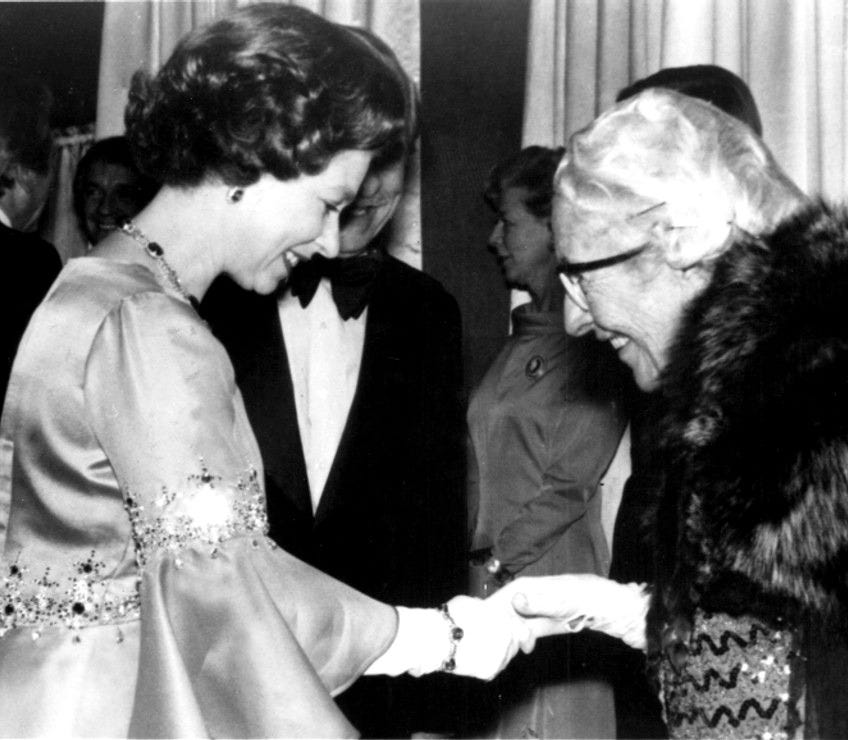
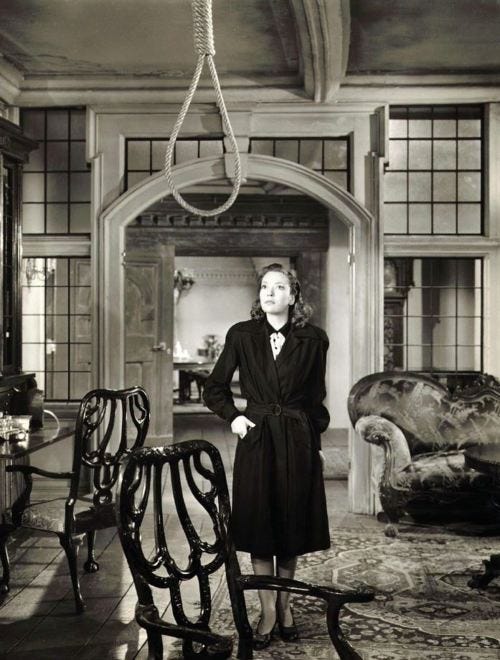
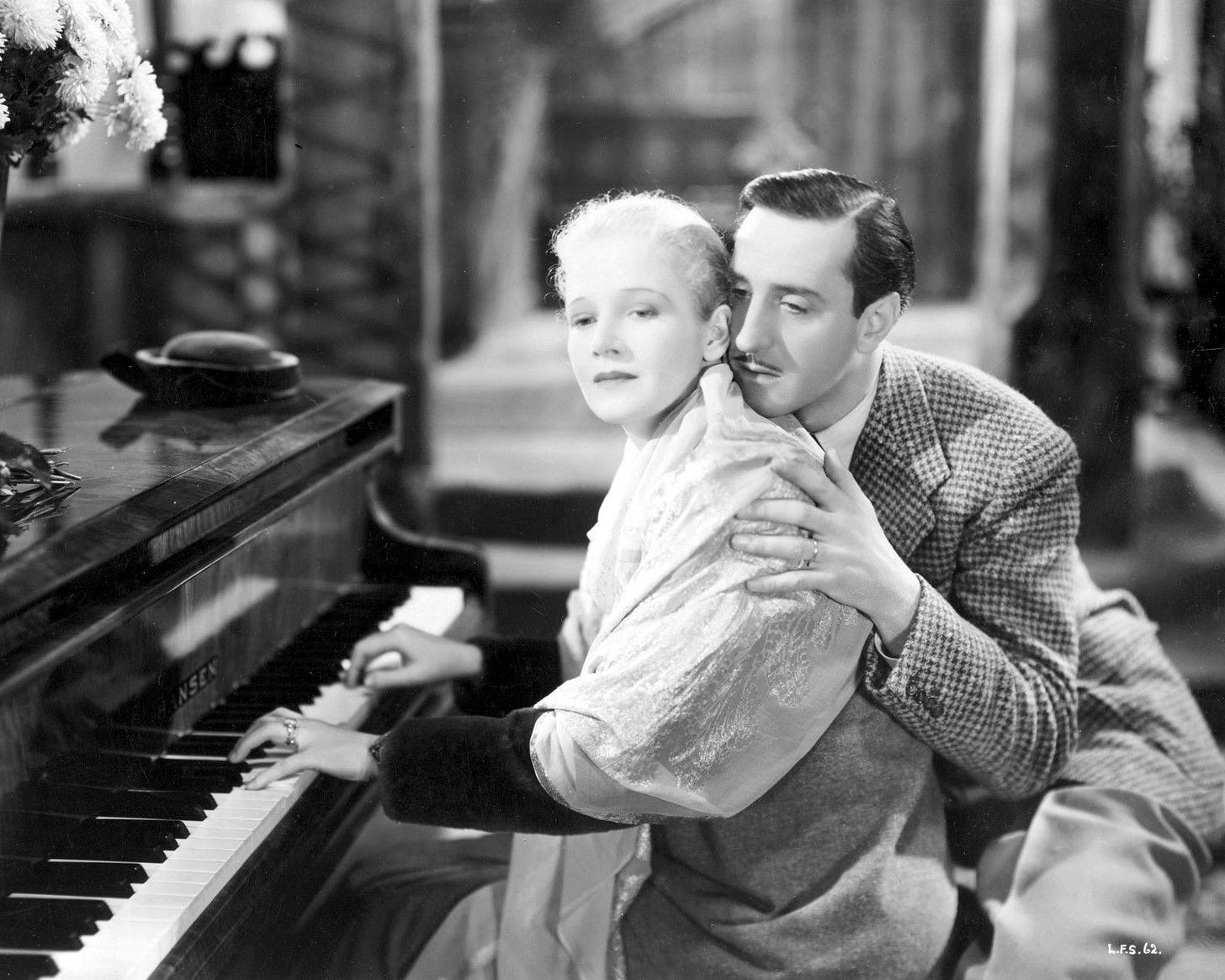
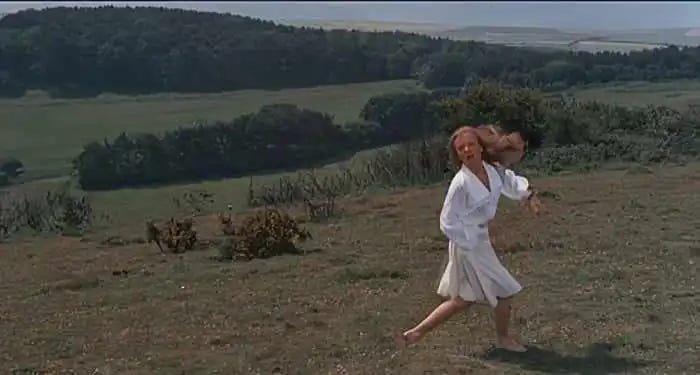


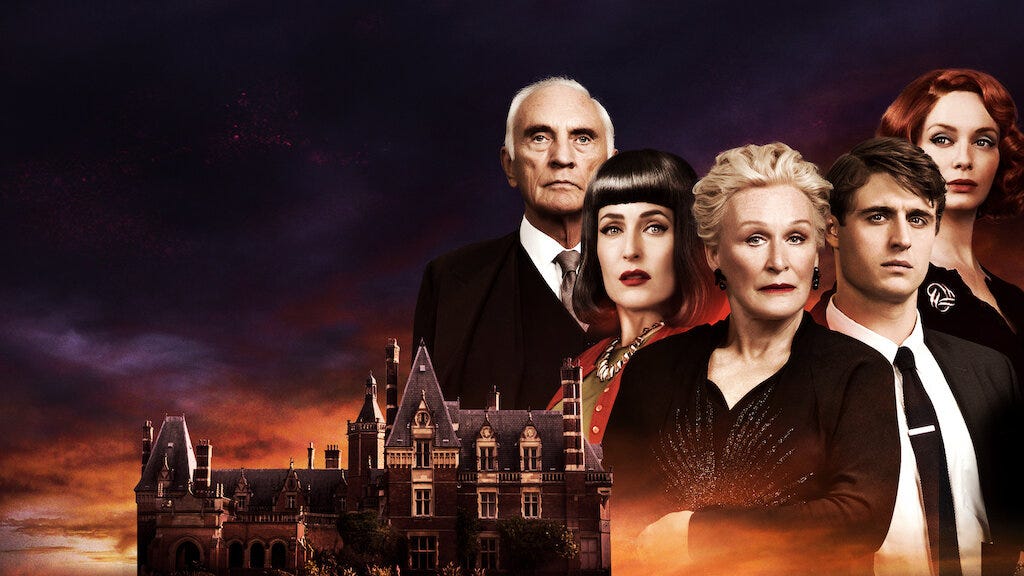
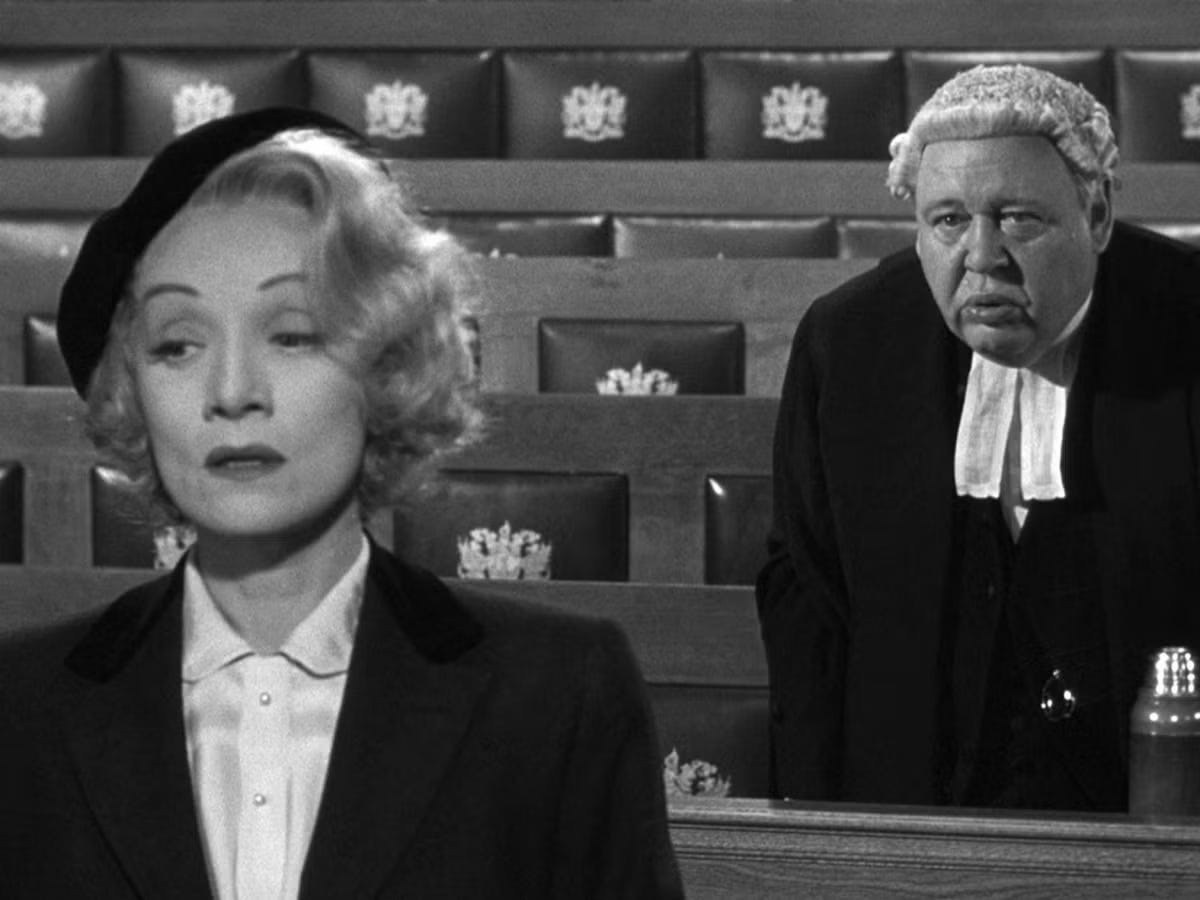

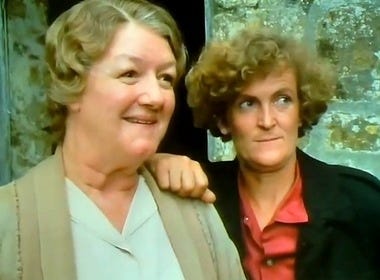
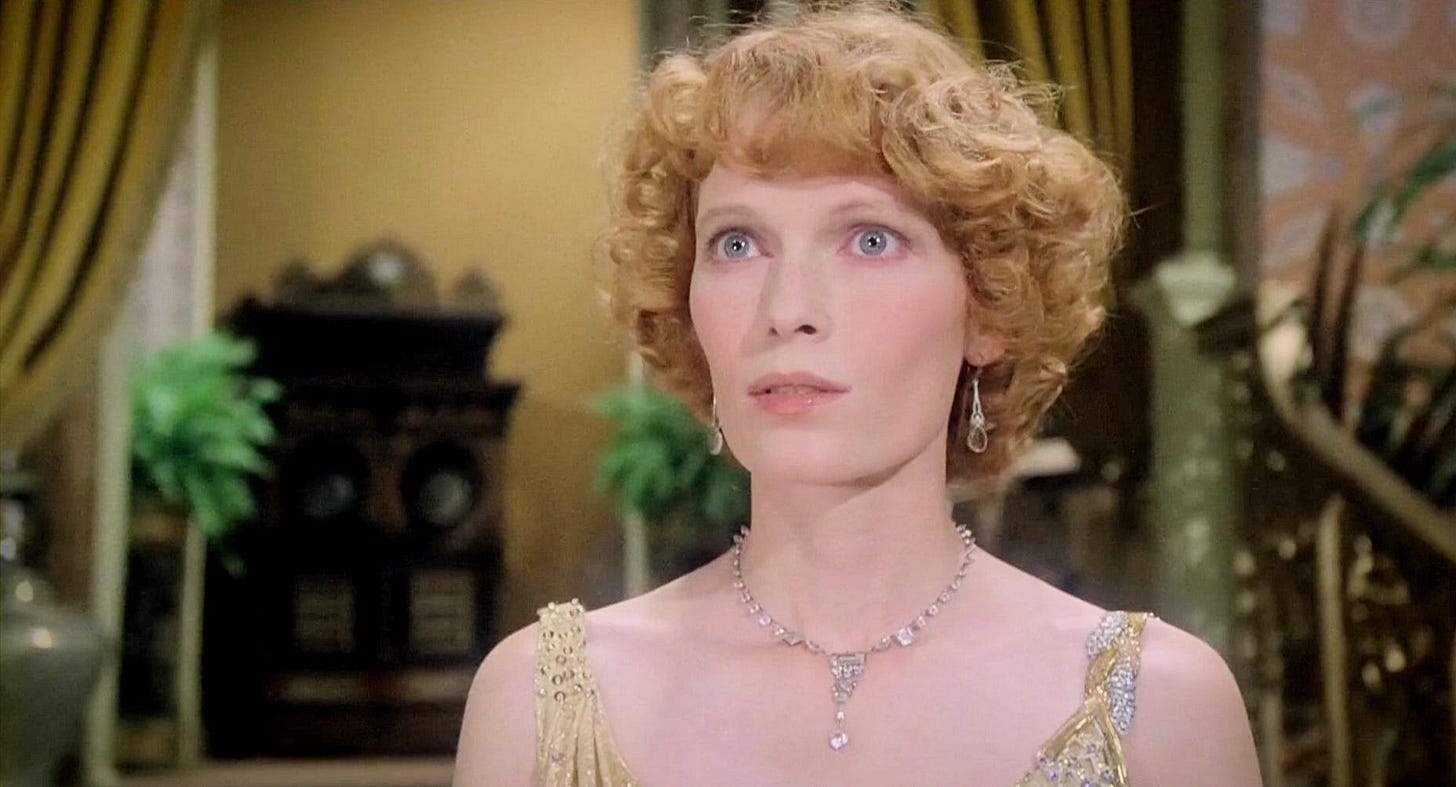
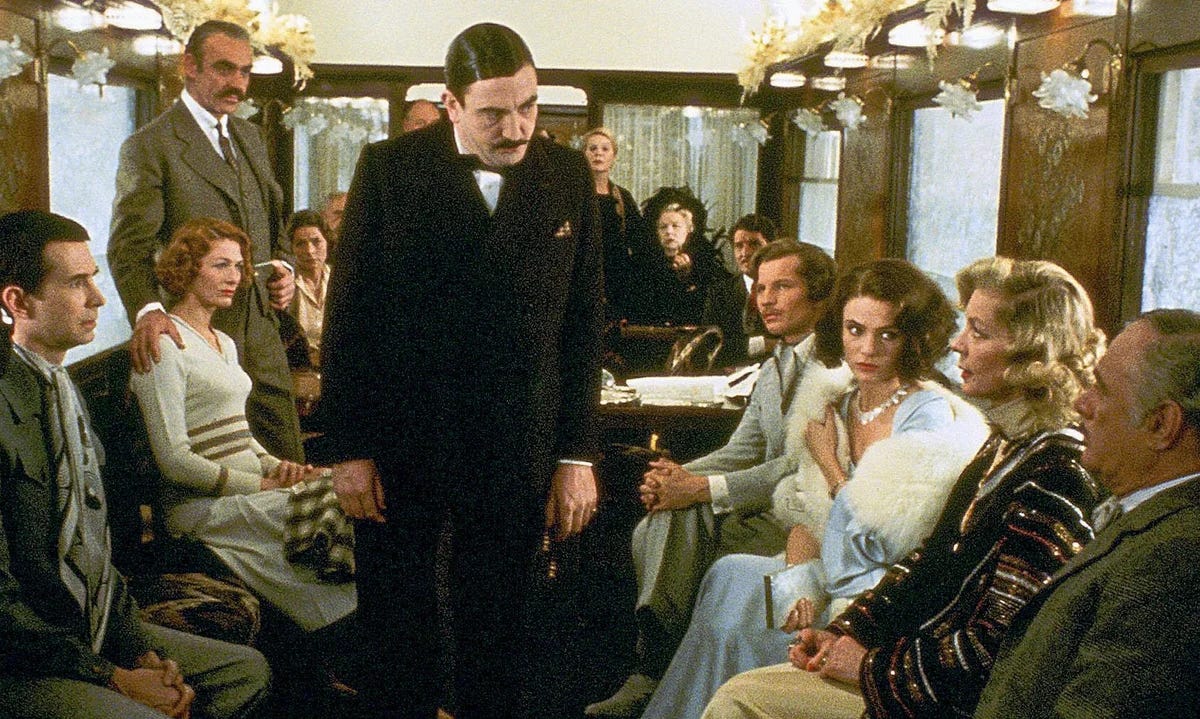
Thank you, Laura, for reminding me how much I love Christie - books, films, TV adaptations, plays - for entertainment, escapism and for a glimpse of the world seen through Agatha’s gimlet eyes. What I object to is Johnny-come-lately adapters who approach the stories with the attitude of “Well, the basic idea is OK - not up to my standard, but all right-ish. What it really needs is me adding unnecessary twiddly bits and ignoring the flow of the story just because I can, and because I’m so fucking brilliant.” Of course, other opinions are available (and probably less sweary).
I am so glad to see "A Murder is Announced" meet your short list. The performances are typically perfection in the whole of the Joan Hickson corpus, but the pathos of the murder of Miss Murgatroyd and having that expressed, as it was in the book, by the redoubtable Hinchcliffe. We enjoy it regularly in our home, along with the rest of the oeuvre.